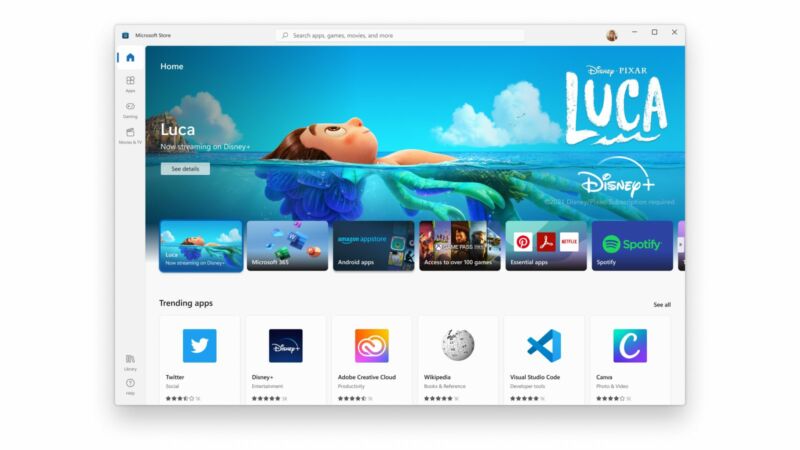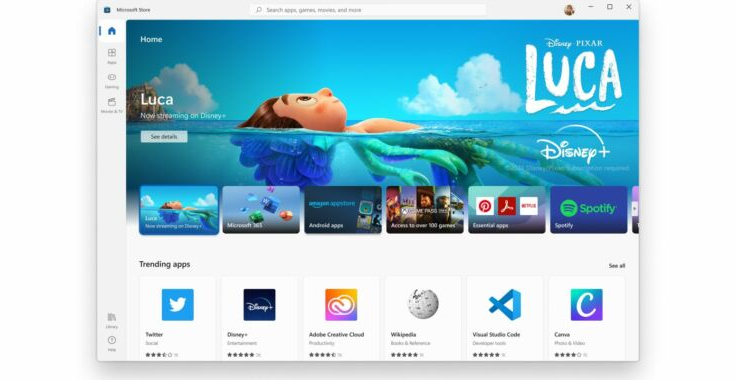
Microsoft
When Microsoft introduced Windows 11 over the summer, it also detailed a major shift in strategy for its app store. In an effort to woo more developers and their apps after years of indifference, Microsoft said it would allow all kinds of apps developed and packaged with all kinds of tools into the Microsoft Store, including everything from traditional Win32 apps to Electron apps to progressive web apps (PWAs).
Now we’re seeing some of the fruits of that change—Microsoft has announced that major third-party apps like Zoom, Discord, Adobe Reader, the VLC media player, and even the LibreOffice suite are all now available in the Microsoft Store for people using the Windows 11 Insider Preview builds. Web apps like Wikipedia, Reddit, and Tumblr are also available. These PWAs look and work just like the regular websites but can easily be pinned to Start or the Taskbar and can display notification badges and a few other benefits that make them feel a bit more like desktop apps.
Microsoft also says it will allow other app stores into the Microsoft Store, starting with Amazon and the Epic Games Store. These will be available “over the next few months.” (When support for Amazon’s Android apps are added to Windows 11 sometime after the official launch, those apps will still be searchable from within the Microsoft Store itself.) If you don’t want to (or can’t) install Windows 11 on your PC, Microsoft says that the new Microsoft Store and the new apps in it will also be coming to Windows 10 “in the coming months.” Windows 11’s rollout officially begins on October 5.
The Windows Store was modeled more closely on Apple’s App Stores when it originally launched in the Windows Phone and Windows 8 days, but it has never been a particularly relevant or convenient way to access most workaday Windows apps. If that changes in Windows 11, it will be to Microsoft’s benefit, even if the company isn’t directly making money from many of the apps. If the Microsoft Store becomes a convenient destination for users, it will be more important for developers to post their apps to it, which will make it more convenient for users, and so on.
Microsoft also announced in June that developers who use their own payment platforms (or third-party payment services from companies other than Microsoft) will be able to keep all of the revenue they earn, instead of the typical 85/15 revenue split for apps. This change notably does not apply to games, which have a lower 88/12 revenue split but have to pay Microsoft its cut regardless of how they handle payments. The Apple v. Epic Games case revealed that games account for 70 percent of Apple’s App Store revenue, which suggests that Microsoft won’t be leaving a ton of money on the table even with these changes.
Listing image by Microsoft



